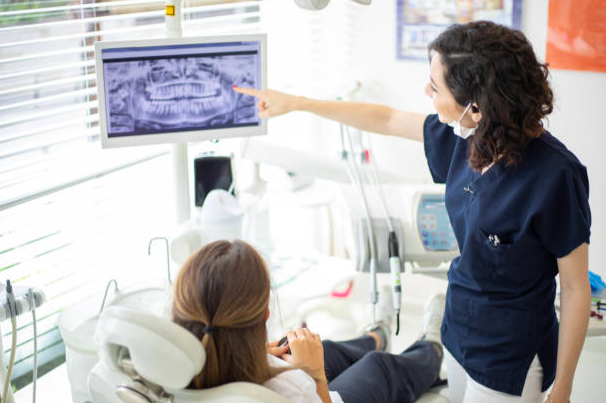
The waterpik was first invented in 1962. There has been a great deal of confusion since then as to which is better for your oral health: regular flossing or a waterpik? Which one is recommended by dentists? Rather than jumping straight to the answer, let’s examine the pros and cons of each method.
Flossing
It may seem like a boring piece of string, but it is much more than that. Flossing is an excellent method of removing food that is trapped between the teeth or below the gum line. Using this method is a very efficient way to accomplish this task, and it is probably one of the cheapest items you will ever purchase. Flossing is quick, easy, and you can do it virtually anywhere. Unfortunately, untrained hands may have difficulty reaching certain areas of the mouth when flossing. There is also the possibility of minor bleeding or sensitivity to the gums.
Waterpik
Our dependence on technology has never been greater than it is today. The waterpik is a special device that shoots a stream of water into the mouth, using pressure to massage the gums and push food away from the teeth. The device is extremely easy to use, making it an excellent choice for individuals with braces or other types of dental work. Gum health can be greatly improved by the massaging effect. It is also easier to maneuver, allowing you to reach those hard-to-reach places that regular floss simply cannot.
Waterpiks, on the other hand, can be costly and difficult to store in your bathroom.Additionally, it requires access to electricity and clean water, which means it cannot be carried as comfortably as a pocket-sized floss container.
As a matter of fact, there is no right answer as to which is the better method of flossing. Depending on your needs and circumstances, both are excellent options for flossing. According to a study published in the Journal of Clinical Dentistry, a waterpik reduced plaque by 74.4 percent, while flossing only reduced it by 57.7 percent. As compared to traditional floss, Waterpiks can also reduce the risk of gingivitis and bleeding gums. Nevertheless, many dentists still recommend string flossing as the most effective method of cleaning between your teeth.
We are here to assist you in maintaining your oral health for life, no matter what decision you make. To schedule your next appointment, please contact our office today.





